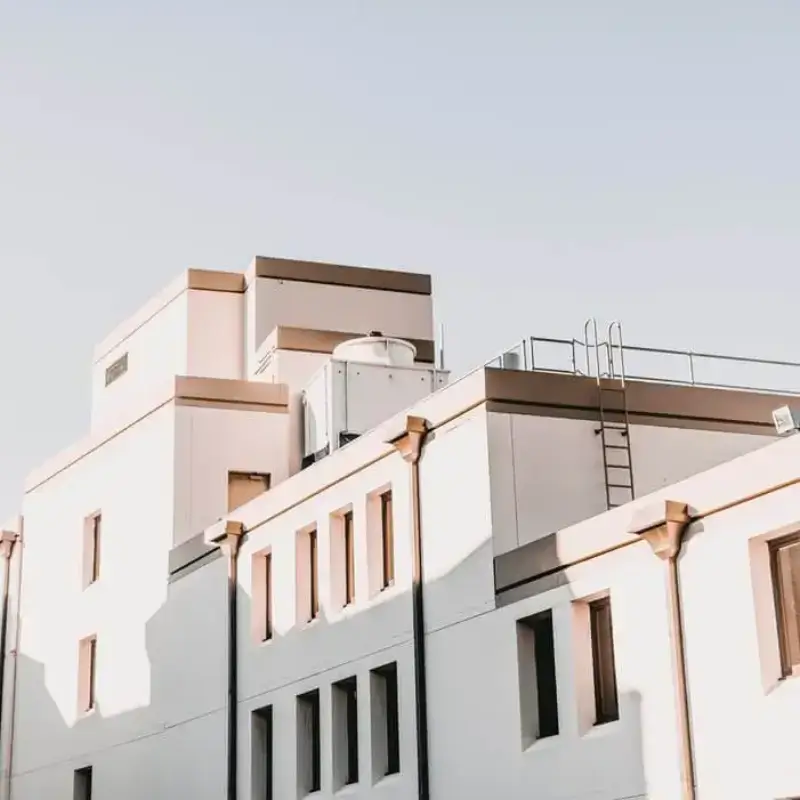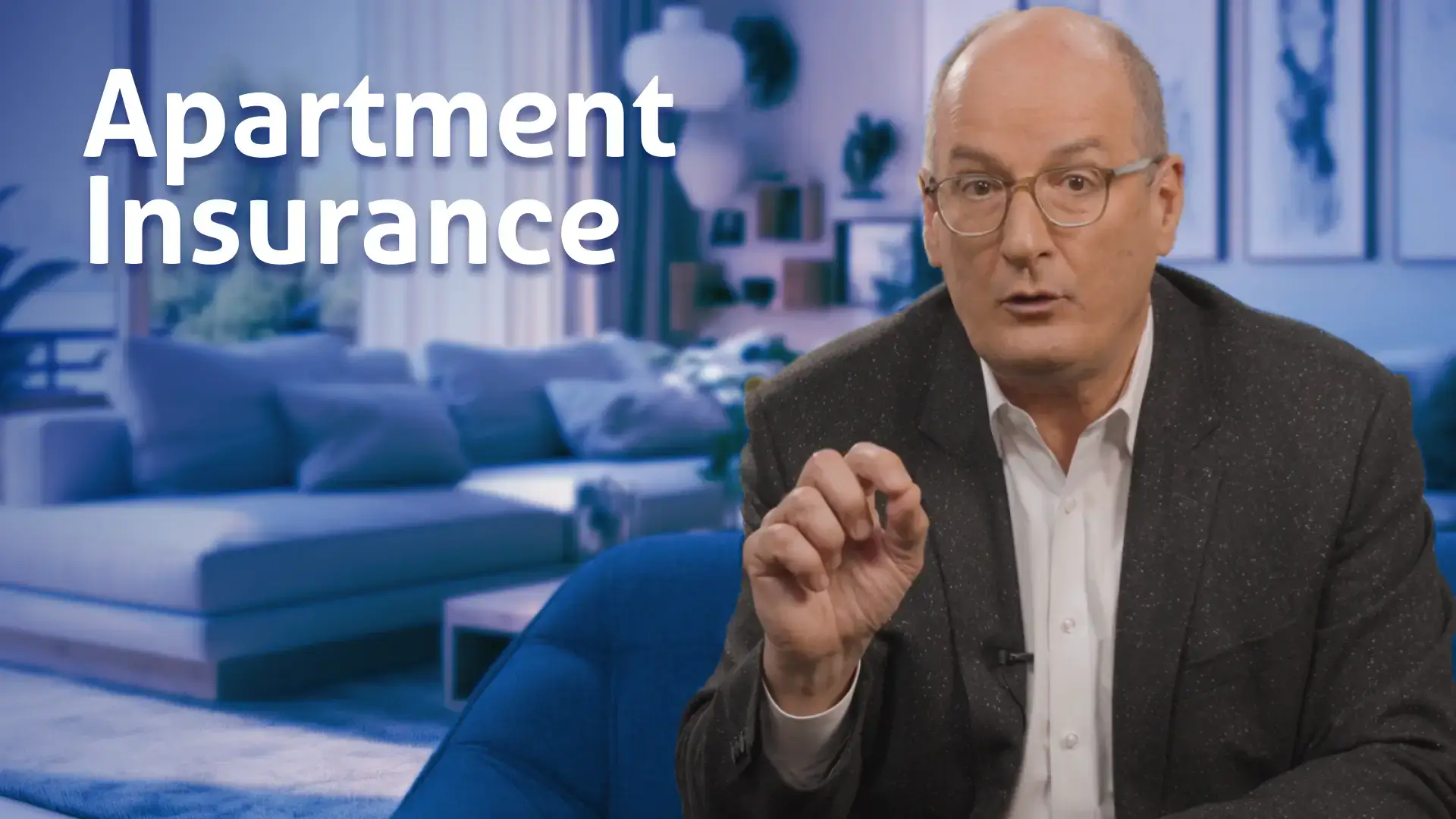Home / Compare Home And Content… / Insurance for apartments

Key takeaways
Freestanding houses aren’t the only types of homes that need to be insured in Australia. Whether you own or rent, here are some things to consider if you live in an apartment or a townhouse:
- Depending on your situation, you might consider contents insurance or landlord insurance if you have an apartment.
- Landlords might consider purchasing landlord insurance to cover furnishings and fixtures in the apartment they’re leasing out.
- While renters in apartments don’t need to take out home insurance, contents insurance can help protect their possessions.
David Koch: “It pays to prepare for the worst.”
Whether you’re a renter or a homeowner, don’t miss what Kochie has to say about getting insurance for your apartment.



Moving into a new apartment can be a dream come true. But once you have a space that’s yours, the next step is protecting it. From theft to damage and even wild weather, it pays to prepare for the worst. While there’s no such thing as standalone “apartment insurance” as an individual product, you can choose from a number of policies that cover apartments.
The first step is understanding which type of insurance you may need. Renters and owners would suit a contents-only policy as the responsibility for the building insurance is usually arranged by the body corporate if your building has one. If you’re leasing the apartment out, then it’s a good idea to look into landlord insurance. Compare the Market has these tips to shine a light into understanding your policy: If you’re living in the apartment, either as the owner or as a renter, check if portable possessions are covered automatically or need to be purchased as an extra.
This includes items like phones, glasses, bikes and even wedding rings. If you’re a landlord, check and see if your insurance is tax deductible. You may be able to claim back the cost of your premium. And, if you’re looking for ways to save, consider adjusting your excess.
A high excess could mean you pay more to make a claim, but it’ll help you reduce your regular premium. You can unlock the door to more potential savings by comparing prices across a range of policies. Start your journey today with Compare the Market.
Tips from our home insurance expert, Adrian Taylor
As the Compare the Market’s home and contents insurance expert, Adrian Taylor has the following tips for those looking for insurance for apartments:

Check if your landlord insurance is tax deductible
As a landlord, you may be able to claim the insurance premiums for your apartment. You’ll need to talk to a qualified tax professional to discuss landlord insurance tax claims for your situation.
See if you need building insurance as well
If your apartment is part of a body corporate or strata title, building insurance may be included in your monthly dues. However, there may be instances where this isn’t the case, and you’ll need to get your own building insurance. Check with your apartment’s building management when you move in.
Don’t forget your portable possessions
Some contents insurance policies don’t automatically cover belongings you regularly take out of the apartment (e.g. mobile phones or glasses). However, many insurers offer this cover as an optional extra. Consider covering these items as well as those that stay inside your apartment.
The basics of insurance for apartments
What is apartment insurance?
 While you can’t get any insurance specifically called ‘apartment insurance’, there’s a host of insurance options to safeguard your apartment and your belongings within it. These include:
While you can’t get any insurance specifically called ‘apartment insurance’, there’s a host of insurance options to safeguard your apartment and your belongings within it. These include:
- Contents insurance. This can cover damage to the contents of your apartment due to events such as fires or theft.
- Landlord insurance. If you’re renting your apartment to tenants, this can cover your liability if someone is injured on the property, and your rental losses if the property is unable to be rented due to an insured claim.
- Strata insurance. This covers the building (including your apartment’s structure) and common areas and is paid through your body corporate fees if your property is under a strata title.
Why is insurance for my apartment important?
There are several reasons why it’s important to get insurance for your apartment.
- An apartment is a valuable investment that, as a landlord or owner-occupier, you wouldn’t want to risk losing. If your apartment was damaged or destroyed, could you afford to rebuild it out of your own pocket?
- You could have thousands of dollars’ worth of possessions in your apartment. Without insurance, you would have to cover the replacement costs or cost of repairs yourself.
- If you’re living in an apartment, it’s still susceptible to malicious damage, theft or vandalism, so it’s important to be prepared for this. If you’re looking for cover for malicious damage caused by a tenant, this may be an optional extra.
Who needs insurance for apartments?
Do I need home insurance if I own an apartment?
If you’re an owner-occupier of an apartment in a multi-storey building or complex, you may not need home insurance if your body corporate’s insurance covers the property’s structure. However, the insurance won’t cover what’s inside your apartment.
For more comprehensive cover, you’ll need a contents insurance policy to cover your belongings and your fittings inside your apartment.
If you’re leasing your investment property to a tenant, you might also consider getting contents cover with your landlord insurance if your apartment is rented and furnished.
Do I need insurance for my apartment if I lease it out?
If you’re renting out your apartment, purchasing landlord insurance would be a smart move to protect your investment property. With the right policy in place, you won’t lose your hard-earned investment should something happen to it.
As well as standard coverage inclusions such as fire and storm damage, some insurance providers might offer optional extras which can be purchased and added to your landlord insurance. These extras can cover you if your tenant defaults on their rent. Some landlord insurance policies may even offer cover for malicious damage to your rental property caused by tenants or their guests.
If you’ve left appliances and furniture in your leased-out apartment, a contents policy could protect them against malicious damage or theft by a tenant. Just be sure to check whether your landlord insurance covers contents or if you need to purchase additional contents coverage.
Do I need home insurance if I rent an apartment?
As a renter, you don’t need home building insurance for your apartment, as the physical structure of the apartment you’re renting is covered by your landlord’s body corporate insurance. However, you may want contents insurance to cover your personal belongings.
Do I still need insurance for my apartment if I pay body corporate or strata fees?
If your apartment is under strata title and you’re paying body corporate fees, your body corporate legally must take out strata insurance to cover the entire building or complex and common areas. In that case, there would be no need for you to take out your own home/building insurance policy.
However, you’ll probably need contents insurance to cover the fittings inside your apartment, as well as your personal belongings (e.g. furniture, appliances and carpets).
Different types of insurance and what’s covered
How can the different insurances cover your apartment?
 If there’s strata insurance on your apartment, it typically covers loss or damage to your apartment’s external structure caused by insured events like storms, fires and more. It can also include temporary accommodation cover for apartment owners should their homes become uninhabitable due to these events.
If there’s strata insurance on your apartment, it typically covers loss or damage to your apartment’s external structure caused by insured events like storms, fires and more. It can also include temporary accommodation cover for apartment owners should their homes become uninhabitable due to these events.
Strata insurance also covers the common property of your apartment building or complex, including:
- Elevators and stairways
- Gardens and gardening equipment
- Car parks
- Tennis courts
- Swimming pools.
On the other hand, if you have a contents insurance policy for your apartment, it can cover your apartment’s fittings (e.g. kitchen cabinetry) if they’re damaged or destroyed by certain events. It also covers your personal belongings in the apartment if they’re stolen, damaged or destroyed by those same insured events (e.g. fire, storm, accidental damage, etc).
Some common items covered by contents insurance can include:
- Appliances (e.g. fridges, washing machines)
- Artwork
- Clothing, jewellery and watches
- Toys and electronics
- Furniture and furnishings (e.g. beds, tables, couches, curtains and blinds)
- Tools and garden equipment.
It’s important to note that some of these items may be subject to a limit. You may like to consider personal effects cover if you need a limit greater than the one listed in the PDS.
If you’re leasing out your apartment, you can get landlords insurance, which can cover:
- Certain legal action in relation to the property
- Your legal liability if someone is injured on your property
- Loss of rent if your tenant defaults on payments (up to a certain number of weeks)
- Damage caused to your property by a tenant with malicious intent.
No matter what type of insurance you get for your apartment, you should always read the relevant Product Disclosure Statement (PDS) of your policy to familiarise yourself with the limits and exclusions relating to the above coverage. Also, check your insurer’s Target Market Determination (TMD) to check if the product is suitable for you.
What type of insurance covers damage to the building or shared facilities of my apartment?
Damage to the building (e.g. external walls and balconies) or shared facilities (e.g. swimming pools, common areas, lifts and car parks) is typically covered through strata insurance. This is usually paid for through body corporate fees.
Does insurance for apartments cover theft?
Contents and landlord insurance policies – both types of insurance you can get for your apartment – can cover the theft of your belongings. However, landlords looking for theft of contents to be covered need to ensure they have purchased landlord contents insurance cover.
Does insurance for apartments cover water damage?
Severe water damage to your contents can be covered by your contents policy. As for water damage to the apartment’s structure, your body corporate or landlord’s strata insurance policy should take care of this.
Check your policy’s PDS for the exact terms of your cover for water damage. Sometimes, insurers may only cover water damage from certain events, like storms or burst pipes.
Are building defects or faults covered under insurance for my apartment?
No, claims for building defects or faults are generally not covered by any type of insurance.
Apartment insurance costs
What factors affect insurance premiums for my apartment?
There are several factors that can affect the cost of insurance for your apartment, including:
- The value of your belongings and how much you insure them for (i.e. sum insured)
- How secure your apartment is
- The age and structure of your apartment
- Risks of natural hazards
Can I reduce the cost of insurance for my apartment?
You can potentially reduce the cost of contents insurance cover for your apartment if you:
- Choose a higher excess. If your insurer allows you the choice of paying a higher excess for your policy, this can reduce your premium. Just keep in mind that you’ll need to pay this amount should you claim.
- Make sure your sum insured is accurate. The insured amount of your contents should accurately reflect the replacement value of your belongings.
- Increase home security measures. Some insurers will take into consideration the security in place to protect your possessions when they’re calculating your premiums. This lower risk of theft could work in your favour.
- Buy your contents policy online. Some insurers will offer a discount if you purchase an insurance policy online as opposed to through a phone call.
Meet our home and contents expert, Adrian Taylor
As a General Insurance expert with over 13 years’ experience in financial services, Adrian Taylor works to make it easier for homeowners, renters and landlords to protect their home and contents. He believes it’s important for all residents (whether they rent, own or lease) to have adequate financial cover for their property and belongings in case the worse should happen.


